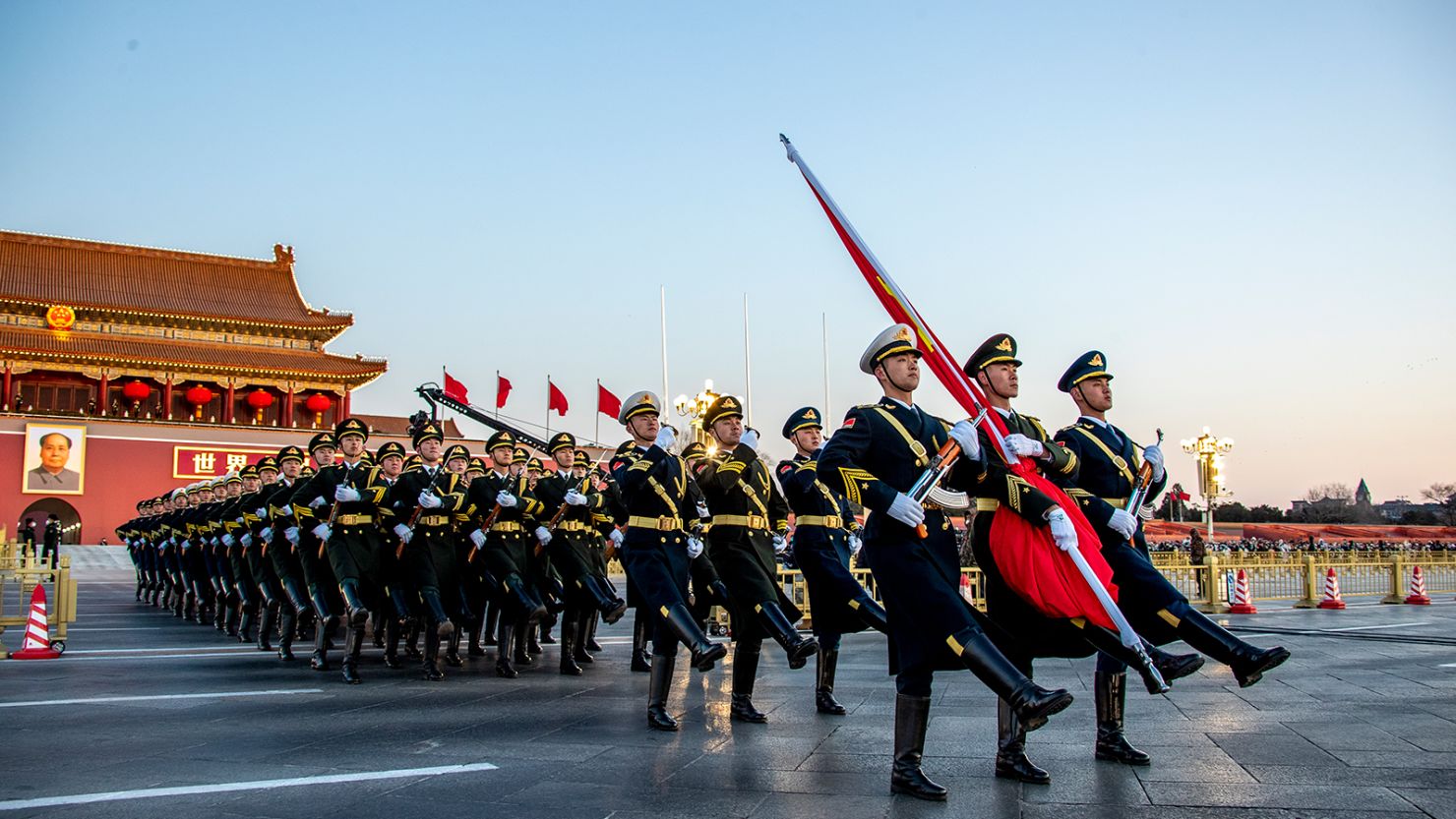A Chinese stand-up comedian has canceled all his performances after a joke he made with a loose reference to the country’s military prompted anger from authorities and an official investigation into the company that represents him.
The controversy underscores the delicate line comedians must tread in highly censored China, a country where politics is rarely a laughing matter.
Li Haoshi caught the attention of authorities after using a phrase associated with the People’s Liberation Army (PLA) as he told a story about two stray dogs in his recent comedy routine, according to state-affiliated media Jimu News.
He later expressed his “deep remorse and regret” in a social media post on Monday, saying that he had used “an extremely unsuitable analogy to bring bad feeling and association to the audience.”
“I will take all the responsibility and call off all my performances to deeply reflect and reeducate myself,” said the comedian, who goes by the name House and has 136,000 fans on Chinese social media platform Weibo.
The controversy stemmed from his show at the Century Theater in Beijing on Saturday, when he joked about how he had adopted two stray dogs since moving to Shanghai.
He went on to say that one day his two energetic canines gave chase to a squirrel, which reminded him of eight words, before he delivered the controversial punchline, according to audio posted to Chinese social media site Weibo.
“Fine style of work, capable of winning battles,” he said, flipping a well known Chinese Communist Party slogan referring to the PLA.
The phrase was first uttered in 2013 by Chinese leader Xi Jinping, who also chairs the military, when he set out a list of qualities he commanded from the nation’s army. It has since been repeated at various official occasions.
‘Step up education’
Li’s joke drew a round of laughter at the show, as shown by audio heard by CNN, but also prompted unease from one member of the audience, who Jimu News reported took to Weibo to complain that the joke was inappropriate.
The post set off an intense debate on Weibo over whether Li was being funny or disrespectful, gaining the attention of authorities who seemed unamused.
On Monday Beijing Cultural Law Enforcement Agency launched an investigation into Shanghai Xiaoguo Culture Media, the company that represents Li, state media Beijing Evening News reported.
Shanghai Xiaoguo Culture Media described the joke as “inappropriate” before offering an apology in a statement on Monday.
“We have suspended his work indefinitely,” said the production firm, adding that it would “step up education and training on actors to maintain the order in the industry.”
Without naming the comedian, Communist Party mouthpiece People’s Daily said even comedians should respect limits when it comes to jokes, and it would be a mistake to put humor before all things.
A new genre of talk shows featuring quick-witted stand-up comedians pitting themselves against one another in televised contests have proven to be a big hit among young audiences in China in recent years.
Comedians make a name for themselves by taking part in these shows and often expand their careers to live shows – as Li did.
But performers have to stick to pre-approved scripts – based strictly on non-political topics – making the indirect military reference that landed Li on the wrong side of the authorities this time incredibly rare.
China imposes stringent censorship on issues it deems sensitive from women’s cleavage to criticisms against the Communist Party across all platforms, be it online social media sites or traditional mass media.
That ideological control has tightened under Xi, widely impacting the entertainment industry.
In 2021, China also passed a law banning slander and insults against military personnel.
Last May, former investigative journalist Luo Changping was sentenced to seven months in prison and ordered to offer a public apology for calling Chinese soldiers portrayed in a blockbuster movie about the Korean war “stupid.”
Li’s sense of humor divided users on Chinese social media.
One user on Weibo questioned: “How come the crowd was still laughing?”
Another user on WeChat, an instant messenger app that also allows users to blog, was more understanding.
“This is not a good analogy and it’s not funny. But this actor had no intent to insult the soldiers,” the person wrote.

